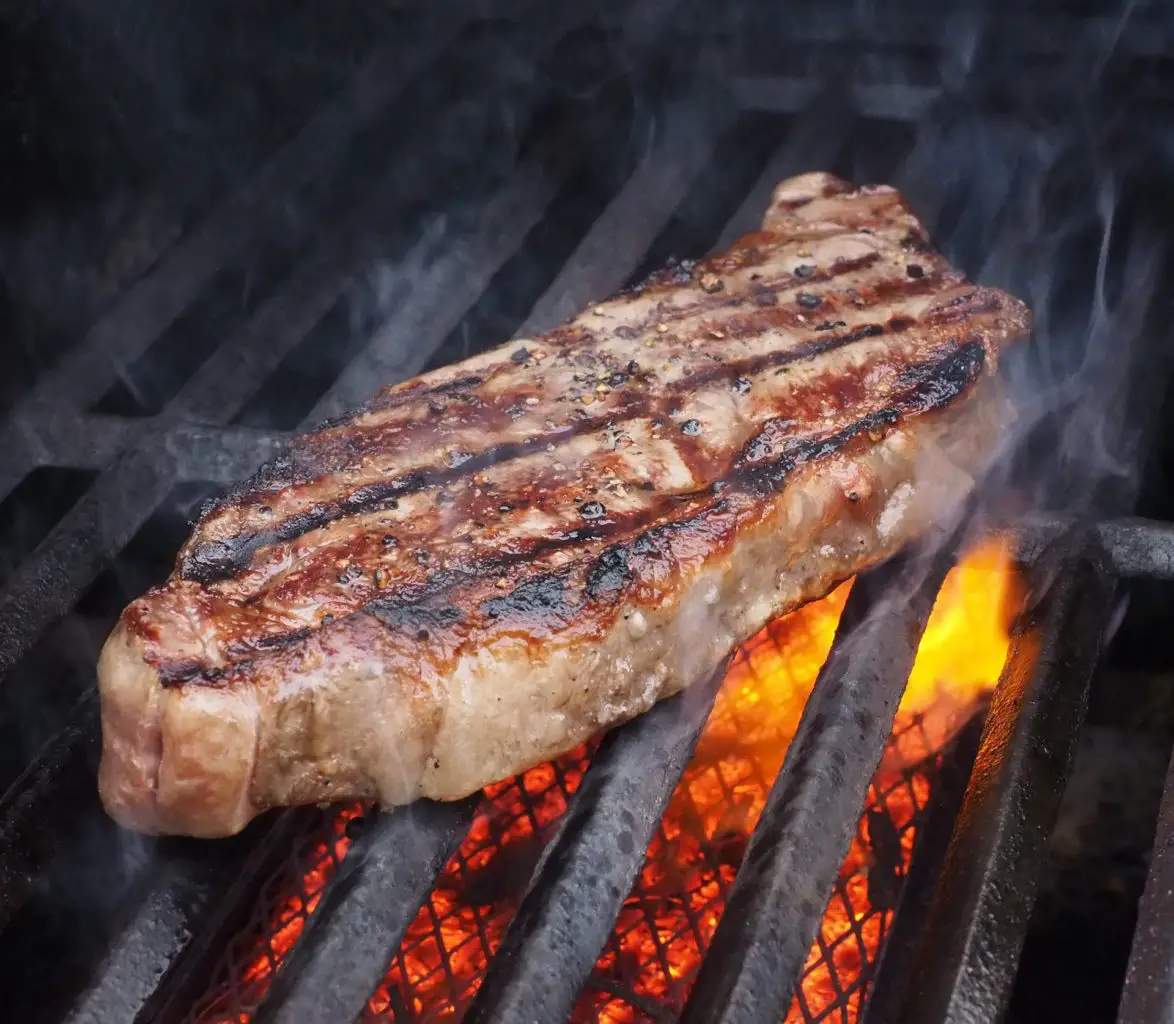Not a week goes by where I don’t see this common question pop up somewhere:
“How much protein can your body absorb at once?”
You can find it everywhere: on forums, in Youtube comment sections, on live Q&A’s. Everyone seems to believe that your body has a certain capacity, a threshold if you will, for protein absorption.
If you go above it, your body goes, “Nope. Nuh-uh. I can only digest 30 grams of protein now. The rest is going to waste.”
You can tell that I’m a bit sarcastic, but is there any truth to the idea? And where did it originate from?
Let’s find out.
Where did this idea come from?
There’s a general understanding that your body has an upper limit for protein absorption per meal. Depending on where you read it or who you ask, that number is in the ballpark of 20 to 30 grams of protein per meal.
And because there’s a theoretical ceiling on protein absorption, many people see it as a good idea to space out their protein intake across 5 or more meals each day. Otherwise, ingesting, say 80 grams of protein in one sitting would result in most of it going to waste.
But, the idea that there’s a limit on how much protein we can ‘absorb’ is wrong. As a survival machine, the human body is very good at keeping us alive. This means that it can absorb unlimited amounts of food and make some use of that energy.
That’s why there are morbidly obese individuals who weigh upwards of 500 pounds. And this idea is also supported by research. A 2009 paper on food digestion found that:
Virtually all ingested protein is absorbed by healthy humans;
If the human body could selectively absorb or discard nutrients as it pleases, one could argue that we wouldn’t have the ability to gain body weight and that we would have gone extinct long ago.
But all of the research suggests that caloric intake is what dictates body weight regulation (2, 3, 4). Therefore, absorption happens (nutrients reaching blood circulation) whether you eat 30 grams of protein in a single sitting or 130.
Now, how the body uses the amino acids productively from the absorbed protein is another topic. In fact, there is some controversial research here.
A study published in 2015 suggested that a “muscle full effect” exists (5), indicating that there is a ceiling on muscle protein synthesis, after which point more protein doesn’t result in more gains.
This “muscle full effect” has been suggested in other research, as well. For example, in one study, the researchers compared 20 vs. 40 grams of whole egg protein after a lower body workout (6). What they found was that “MPS displayed a dose response to dietary protein ingestion and was maximally stimulated at 20 g.”
In another study, the researchers examined the effects of 30 grams of beef protein vs. 90 grams for muscle protein synthesis (7). They also came to a similar conclusion:
Ingestion of more than 30 g protein in a single meal does not further enhance the stimulation of muscle protein synthesis in young and elderly.
Welp, there we go, ladies and gents. There is a limit.
But, how much protein can your body absorb at once? We are not done yet.
Use of Protein Depends on Different Factors
Yes, lab results are important, but we need to look at how that would work in the real world. How much protein your body uses productively depends on three big factors:
#1: How much of your muscle mass you damage through training
In one study, subjects were split into two groups: lower (≤65 kg./143 lbs.) and higher (≥70 kg./154 lbs.) levels of muscular development (8). Muscle protein synthesis was measured after either 20 or 40 grams of whey protein after a whole-body workout.
What the researchers found was that 40 grams of whey stimulated higher levels of muscle protein synthesis, likely because the subjects did whole-body workouts:
We believe the most likely explanation for the difference in response of MPS to resistance exercise and protein ingestion is the amount of muscle activated during the exercise bout.
Keep in mind that the subjects weren’t by any means that big. It’s important for the next point.
#2: How much muscle mass you have
It’s a common understanding that having more muscle mass increases your protein needs. This is why protein recommendations are based on the individual’s lean body mass (or body weight, to simplify things).
And it’s not a stretch to assume that having higher protein needs would allow your body to break down and productively use more protein in a single sitting.
This notion is supported by research (9):
To account for inter-individual variability we propose the addition of two standard deviations to our estimate, yielding a dose of protein that would optimally stimulate MPS at intake of 0.4 g/kg/meal (or 0.18g/lbs/meal). In our view, ingestion of protein beyond this dose would result in no further stimulation of MPS.
So, for a guy who weighs 150 pounds, the dose would be 27 grams of protein, and for a guy who weighs 190 pounds, the dose would be 34 grams.
Would you look at that? It seems that the general 20 to 30 grams of protein would not be enough for larger guys.
How much protein can your body absorb at once? This is a question you can only ask after knowing how much muscle mass you have.
#3: Your age
A phenomenon known as anabolic resistance takes place as we age (10). Meaning, we need to ingest more protein to get the same muscle protein synthesis response that a younger person would get from a smaller dose.
It would seem that the more factors that stack in your favor (e.g., you’re older, you have more muscle mass, and you train whole body), the more protein your body can use productively.
But is that the whole story?
Limitations of the above research
You’ve probably noticed a big limitation of the research we’ve covered so far: it’s short term. We only see acute effects of protein intake.
In the long-term, there’s good evidence to suggest that how much protein you eat within a single mean doesn’t matter nearly as much as how much protein you eat throughout the day.
One good example of that is intermittent fasting. Folks who follow IF routinely fast for 16-18 hours and consume their daily dose of protein within one or two meals. And they build muscle just fine.
Don’t believe me? Take a look at Brad Pilon and Martin Berkhan.
When most bros hear about fasting for 16-18 hours each day, they can feel their muscles cringing away. But the fact is, splitting up your protein intake only seems to add an unnecessary layer of complexity.
In one study, the researchers found that IF doesn’t affect protein metabolism (11). They found that consuming 101 grams of protein within a four-hour window had no different effects on lean mass preservation when compared to a more traditional eating pattern.
In a different paper, the researchers examined the effects of reduced meal frequency (12). Over the course of sixteen weeks, subjects ate their calories (at maintenance level) in either one or three meals. They also consumed roughly 86 grams of protein daily (which is quite low in my mind, but whatever).
What they found was that all subjects maintained their body weight, but those that consumed just one meal experienced greater hunger, and had lost some fat, but not muscle.
So, how much protein can your body absorb at once?
Sadly, we don’t have a definitive answer here, and it seems like a bunch of factors play a role. But, based on the research that is out and what we know about protein metabolism, we can come to two conclusions regarding protein intake and getting maximally jacked:
1)You need to eat enough protein each day
Most of the researchers and experts out there suggest somewhere between 0.8 and 1.2 grams of protein per pound of LBM. To keep things simple, you can adhere to the 1 grams per pound of body weight rule.
2)Include protein in each meal
Whether you eat three or six meals a day, it’s safe to include some protein in each one. This will allow you to hit your daily protein needs and you won’t have to stuff yourself with tons of protein in a single sitting.
Remember: protein is very satiating (13) and if you’re someone who struggles to eat enough food as it is, it’s better to space it out over multiple meals.
But this is not to say that, if you do follow intermittent fasting, you are wasting potential gains. Plenty of guys have built amazing physiques while following IF and, as we saw from the research, as long as the protein intake is sufficient, you won’t harm your muscle-building abilities.
To paraphrase what Martin Berkhan said in one of this articles:
“When I eat, I eat big. I can’t satisfy myself with 5 or 6 small meals. I’m constantly hungry. I’m much better off eating one or two giant meals.”
Follow me / Pump Some Iron on Instagram for updates @pump.some.iron

